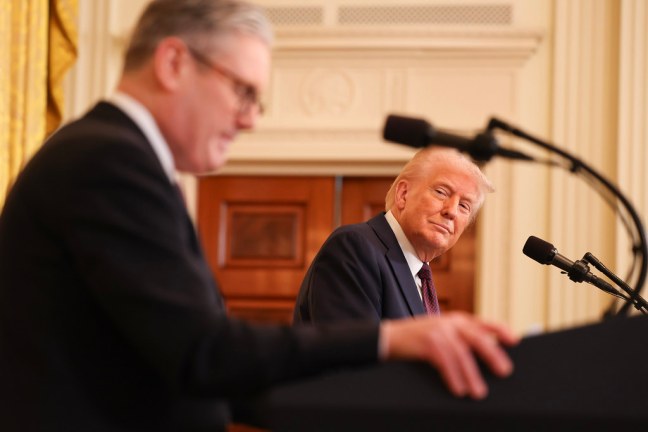The 58 year-old campaigner rose to prominence in 2016, when she challenged the UK government’s authority to trigger article 50 without parliamentary approval. The Supreme Court ruled in Miller’s favour, triggering a deluge of online hatred from Brexit supporters.
The Metropolitan Police issued eight “cease and desist” notices to people who had sent Gina Miller threatening messages; one aristocrat was jailed for 12 weeks after offering “£5,000 for the first person to ‘accidentally’ run over [the] bloody troublesome first-generation immigrant.”
Eight years – and another successful legal challenge, this time against Boris Johnson’s plans to prorogue parliament in 2019 – later, and the hatred is still rolling in. And as the culture wars rage on, it shows no sign of abating.
“The death threats are every day,” she says. “These people have always been in our society, but they were at the fringes and it wasn’t acceptable. It’s no longer on the fringes, it’s front and centre in our society, in our politics, in our Parliament.”
Such hatred takes a toll on women in public life. There are currently 225 women in the House of Commons – a little over a third of all MPs. We’ve come a long way in a short time; women have only been able to stand for election as an MP since 1918. But these gains should not be taken for granted, Miller says.
“The nature of the culture and the bullying and the misogyny that’s now in politics means that a lot of good women are stepping down,” she says. “This is a cross party thing.”
Advertising helps fund Big Issue’s mission to end poverty
As a parliamentary candidate herself, Miller has a vested interest in this call for female political engagement. She is standing in Epsom and Ewell for the True and Fair party, an organisation founded in 2021 with the aim of championing bipartisan “transparency and accountability” in Westminster.
But her concerns extend further than her own electoral prospects; Sexism is everywhere in the UK. Online abuse of women is widespread in the UK with one in five women having suffered online abuse or harassment. This week, Labour has warned of a “growing scourge” of misogyny in Britain’s classrooms. While there were no mentions of sexual harassment in Ofsted reports in 2017, that figure reached 40 mentions in 2021 and 106 mentions in 2022.
And last year, a study by the Young Women’s Trust found that the workplace is becoming a more hostile place for female workers – and that 50% feel that they have experienced discrimination at work.
With its algorithmic platforming of toxic influencers like Andrew Tate, the internet is partly to blame for this shift, But right wing politicians stoking culture wars are also to blame, Miller says.
“The internet has amplified those voices. But it also goes back to the fact that [Boris] Johnson and [Nigel] Farage awoke a different electorate,” she added.
“The move to the right threatens women. Right-wingers think we should stay at home – you don’t need to fund social care or elderly care, because women will do it.”
Advertising helps fund Big Issue’s mission to end poverty
More broadly, Gina Miller believes that Britain’s political system is broken. The True and Fair party is standing five candidates in the next general election, with Miller running in her Surrey constituency against Conservative candidate Mhairi Fraser.
The party are running on a pledge to strengthen governmental institutions, introducing an Ethics in Public Office act that would ban second jobs and paid lobbying and force MPs to attend parliament at least 32 weeks per year.
The party would also mandate compulsory voting, and establishing a ‘Democracy Day’ bank holiday. And of course, given Miller’s history, the party advocates for us to re-join the EU – though as Brexit recedes into the rear view mirror, this is not the focus of their campaigning.
Gina Miller admits that her small party will not be forming government. But she believes that independents could have an outsize influence in the next parliament.
“I’m not someone who bets, but I do not believe that the Labour lead is as solid and as big as people think, I think it will be much narrower,” she said. “In that environment you have a proxy for a proportional representation because you’ve got other voices… there is the opportunity for compromise.”










